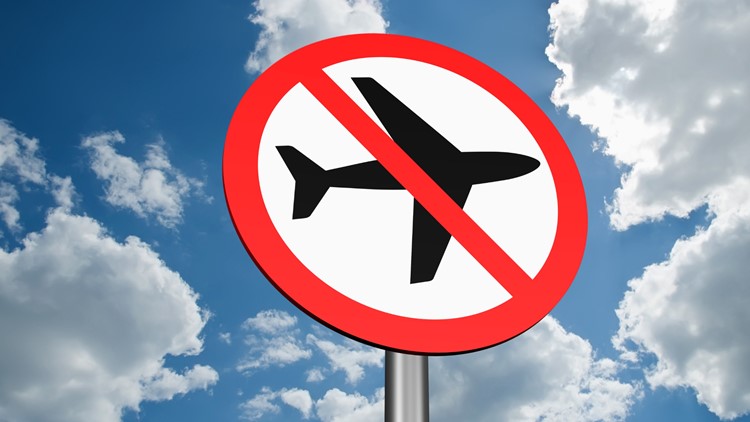CALIFORNIA, USA — In response to the omicron variant's discovery in South Africa, President Joe Biden wrote a tweet saying “until we have more information, I am ordering air travel restrictions from South Africa and seven other countries.”
It's ignited conversations on the effectiveness such measures have on the spread of COVID-19, specifically whether a travel ban can stop the spread of the virus.
THE QUESTION
Do travel bans stop the spread of COVID-19?
THE SOURCES
Dr. Payal Kohli - Medical Expert
Dr. Brad Pollock - Associate Dean for Public Health Sciences UC Davis
ANSWER
No, travel bans do not stop the spread of COVID -19, but when implemented at the right time and in the right way, they can slow the spread of the infection.
WHAT WE FOUND
Dr. Pollock said travel bans have been used since the beginning of the pandemic, specifically over in Europe, and there is some evidence that the bans slowed down the spread.
"Really the main reason, we are having the travel bans is to slow things down a little bit to allow us to prepare, to have both the hospital capacity ramped up maybe even testing capacity," Pollock said.
With cases of the omicron variant now popping up in the United States, the effectiveness of the bans are not the same as once before.
"At most, they are probably slowing it down by a couple of days or maybe a week or two, so it’s not months, for sure," Pollock said.
There are also flaws in the president's travel ban that make it ineffective, according to Dr. Kohli. Kohli referenced that U.S citizens can still travel into the country.
"There is no science that says U.S. citizens versus foreign citizens spread the virus differently, so it really doesn’t make any sense from a scientific perspective," Kohli said.
WATCH ALSO:





















